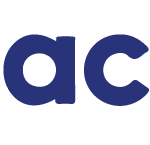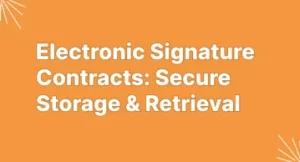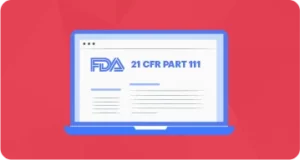Does MSB Docs Conform with HIPAA Compliance
Ink and paper are losing their momentum in many industries as almost every industry is trying to transform its processes digitally. Still, there are some industries which are legally bound to conduct a paper-based process and cannot shift to digital or electronic signing, whereas the majority of them are not. Thankfully, healthcare is one of the privileged industries that is not bound to any such exemptions and is legally allowed to use eSignatures and digital document transactions.
We, at MSB Docs, are helping healthcare providers by getting their document transactions to go paperless. Most of our conversations with our clients in the healthcare industry start with two major questions, “Are electronic signatures HIPAA compliant?” or “How MSB Docs is meeting the HIPAA requirements?” So, this blog post is aimed to deliver in-depth details to those who are still in a dicey situation to put a step forward in the digital world.
Before we start explaining the MSB Docs conformity with HIPAA, here are some of the major use cases where the healthcare industry can start adopting electronic signatures and digital document transactions using MSB Docs platform:
- Patient onboarding
- Billing forms
- Consent forms
- Medical prescriptions
- Lab reports
- Care documents
- Provider agreements
Going digital with these processes will let the healthcare organizations offer top-notch in-patient as well as out-patient services, excellent care, and reduce costs in carrying out paper-based processes. Without a doubt, all this can happen by remaining in compliance with HIPAA requirements as MSB Docs meets compliance requirements across all industry practices, including the Healthcare industry.
MSB Docs Conformity with HIPAA
Complying with HIPAA rules is critically significant for health care providers. Not only the healthcare providers but also those who are offering services to them. MSB Docs proves conformity with HIPAA by fulfilling the following conditions required for HIPAA electronic signatures:
1 Legal Compliance
There are fundamental laws that recognize electronic signatures on contracts, documents, or agreements as legal and enforceable. MSB Docs complies with all of them, including the well-known Uniform Electronic Transactions Act (UETA) and the Electronic Signatures in Global and National Commerce Act (ESIGN).
2 User Authorization
Validating the identity of all participating parties is another major HIPAA requirement. MSB Docs fulfills this requirement by offering two-step verification by sending One Time Password over email or phone to all its users. This prevents disputes by validating the identity of every transacting party.
3 Message Integrity
Safety and security of all PHI (Protected Health Information) hold the utmost importance in the healthcare industry. MSB Docs tamper-proof storage and audit trail feature keeps the security levels up to date for all agreements before, during, and after use.
4 Non-Repudiation
According to HIPAA rules, every document transacted digitally should have a time-stamped audit trail. MSB Docs leaves no stone unturned by offering time-stamped audit trail functionality within its system. This prevents the healthcare industry from getting into an argument for the authorization to share PHI.
5 Ownership and Control
Saving the multiple copies of the same document on the server for future reference is the need for maintaining legal enforceability. At the same time, there is a need to ensure the integrity of PHI. MSB Docs fulfills these needs by offering complete ownership and control of each copy of the document to its users that are saved on our cloud storage.
Hopefully, the above requirements and needful done by MSB Docs against them ensures that MSB Docs conforms with HIPAA. So, without a second thought, transform your paper-based healthcare processes into paperless and reap the real benefits of compliance, mobility, efficiency, and cost-saving.









